Description
Once upon a time is a collection consisting of an introduction to six short stories and a collection of vulgar Persian words written by Seyyed Mohammad Ali Jamalzadeh and published in 1300. This book is considered to be the beginning of realistic Persian literature and short story writing in Iran.

Seyyed Mohammad Ali Mousavi Jamalzadeh (January 14 in Isfahan) was a contemporary Iranian writer and translator. He is considered the father of Persian short stories and the initiator of the style of realism in Persian literature. He published the first collection of Iranian short stories entitled One and One was not in Berlin in 1300 A.D. Took. To this day, he, along with Zein al-Abedin Rahnama, Hossein Quds Nakhaei, and Abolghasem Etesamzadeh, are recognized as the only Persian speakers to be nominated for the Nobel Prize in Literature.
Book Overview
This book, which is also known as the book of the beginning of fiction books in Iran. In his books and stories, we see simple and pleasant parables and similes that add to the beauty of his works. In the electronic version of this book, there is a humorous and beautiful story of a goose kebab and several other stories in addition to the printed version. This version, which is the second edition of the electronic publication of this book, includes two sections of introduction and a collection of vulgar Persian words that have been added to it. These two sections are not available in the previous edition. Changes have also been made to its layout.
The anecdotes of this book are: Persian is Sugar, Political Man, Aunt Khorseh’s Friendship, Mullah Ghorban Ali’s Heartbreak, Beige Dig Beige Beet, Vilan Al-Dawlah, Goose Kebab, A Collection of Popular Persian Words, respectively.
Clay is sugar
Focusing on different strata in Iran, the author’s influence on the invasion of the Persian language, the study of language and culture as one of the most influential and influential cases of a people and nation is one of the first things that can be seen in this story. Early in the constitution, the society wanted to get out of the traditional mode and modernize, and some wanted to cooperate and some wanted to confront.
This is the story of the confrontation between tradition and modernity, which is a new work for Jamalzadeh. The name of the Persian story is sugar and also challenges the anonymity of the language. The ID card is the representative of the ruling class of that period, which is tyrannical and tyrannical, and is changed the next morning, and is replaced by a person like the previous one.
In this story, it is found from different classes of human society with different dialects and thoughts that it represents a small society of the same period as the author, from the French to ordinary and illiterate human beings. In short, the Persian story is thankful for the situation of language in the contrast between modernity and tradition, which has been formed from the point of view of Mohammad Ali Jamalzadeh.
Political man
Jafar is not literate, but he thinks that if he becomes a politician, he will open a place for himself. The people in this story are generally atmospheric people. Khaqan al-Saltanah was also an opportunist and wanted to fish in the muddy water, he is looking for an opportunity to take advantage of Jafar’s position. Jamalzadeh’s works are similar to works such as anecdotes, stories and travelogues. . The story of the politician examines the Iranian society in certain times and circumstances and refers to the fate of the people falling into the hands of those who have no specialization at all. The onslaught of a chaotic current in the society of the story of the politician follows the people and democracy no longer makes sense, and in this story the presence of the people is still felt.
Aunt Bear Friendship
The story of Aunt Bear’s friendship refers to 7 years of Russian military presence in Iran. The Russians wanted to stand up to Britain and increase their presence in Iran, so they invaded Iran. Habib… as the main character is placed on one side of the story who is a lovable person. In this story, Russia is a symbol of cunning, hypocrisy and money-loving, and Habib… is a representative of the masses and a symbol of simplicity and oppression. Habib’s death is full of simplicity and kindness and at the end of the story, his body is covered in the snow with the same simplicity.
Mullah Ghorban Ali’s heartache
In this story, the religious and traditional currents of Iran are examined. This story is a psychological discussion in which Ghorban Ali, the narrator and the main character of the story, is captured in his heart and finally his heart and lust arise. Roza Khan, the story of Mullah Ghorban Ali’s heartache, has only learned the appearance of religion and has reached bread and music in this way. The story looks at religious issues from a behavioral psychology perspective. Hypocrisy and contradiction of reason and religion of Ghorban Ali are clearly seen in the story and it is pointed out that some people are repeated in a period according to their age.
Beetroot Boiler Beetroot Boiler
The same critique of the social and political currents of Iran is during the constitutional era. This story refers to the fact that foreign countries that came to Iran did not feel sorry for the Iranians. The metaphor of Dalak’s pulling back, which is used very reluctantly in the story, also refers more to flattery (pulling back, flattery).
The king does something wrong and his subordinates put their hands behind his back. Consultation is not specialized. The meaning of the story of the beet pot also refers to an old anecdote, meaning that such a pot also needs such beets. There is a direct relationship between Dalaki, the bathroom and the counselor.
This story is about a man who is different from the rest. This person is an overhead who lives his life by his own trick. Refers to a type of thinking. That they do not look at work as a part of life. The overload and the state of free eating with the suffix Vilan al-Dawla is related to the fact that those who make their living from the affairs of the people are people who do not have a work or moral conscience. These people were and their absence is one that refers exactly to the character of Vilan al-Dawla.
Vilan al-Dawla was one of those people who thought he could do something, but when people came to him, they saw that he could not do anything. If Vilan al-Dawla is a brigade, what symbol is it? This has been and is one of the social behaviors of Iran. The steward or broker can be anywhere.
Such people are nowhere, nowhere and without identity, who are first disciplined. In fact, they have a kind of job that does not go through their own channel and increases economic poverty.
In the book, there was one, there was not one, Mohammad Ali Jamalzadeh, the stories all have themes. That is to say, all the current issues of the society of Jamalzadeh’s time are raised, and he has been very intellectual from the point of view of view. For this reason, he is a pioneer and respected because he is the initiator of the new fiction literature in Iran. Characterization is present in all the stories, but there are additions that can be considered in light of his early imitation of French literature.
It has beautiful humor and pictures. It creates a sense of happiness or a sense of hatred in the reader. After Jamalzadeh, writers like Saedi have been influenced by him and Hedayat has also been influenced by Saedi.
The humorous effect that can still make you laugh after 96 years is the effect of six teeth. This work of Jamalzadeh laughs well and embarrasses him well when you see that after ninety-six years, the same cultural weaknesses that Jamalzadeh has exposed frankly and without showing off to the Iranians of the year of Reza Mir Panj’s coup still remain with you. What do you say we have done in this century!
This book by Jamalzadeh is both one of the strongest collections of Persian short stories and one of the strongest works of short humor and a small booklet of Iranian culturology. If you read the book, do not miss Jamalzadeh’s foreword. Preface to the book Manifesto for Modern Iranian Literature. We are still following the path of Jamalzadeh’s point of view and we are still limping in the scene of revealing the do’s and don’ts of Jamalzadeh. Mohammad Ali Jamalzadeh is one of the contemporary Iranian writers and the initiator of modern fiction in Iran.
1- Introducing the book on YouTube
2- Introducing the book in Aparat


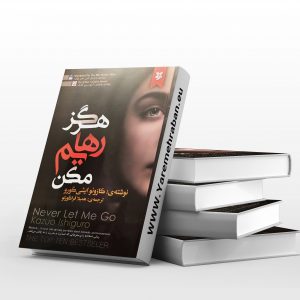
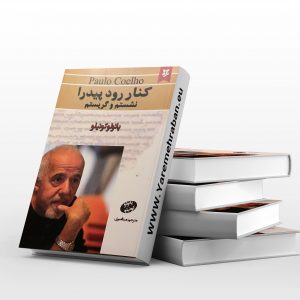
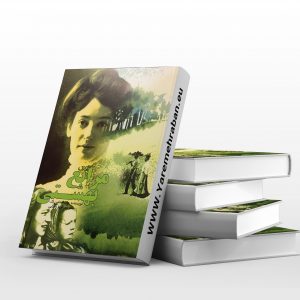
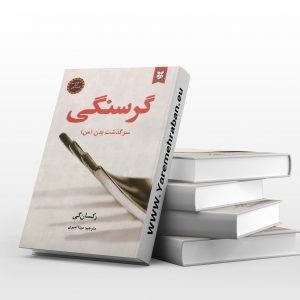
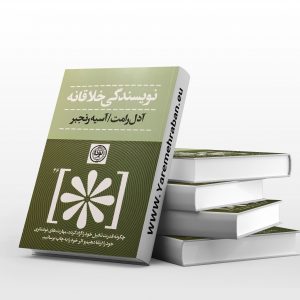
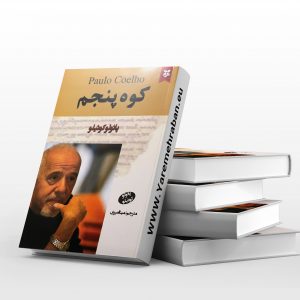

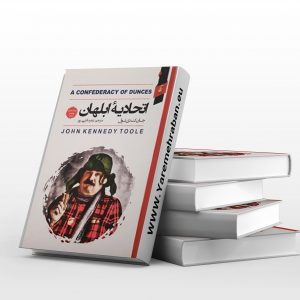


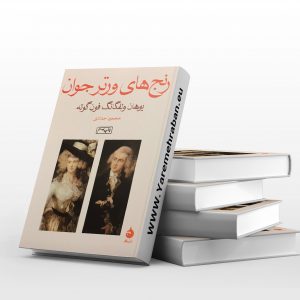
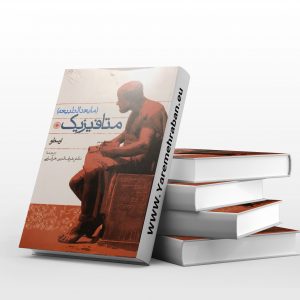
Reviews
There are no reviews yet.